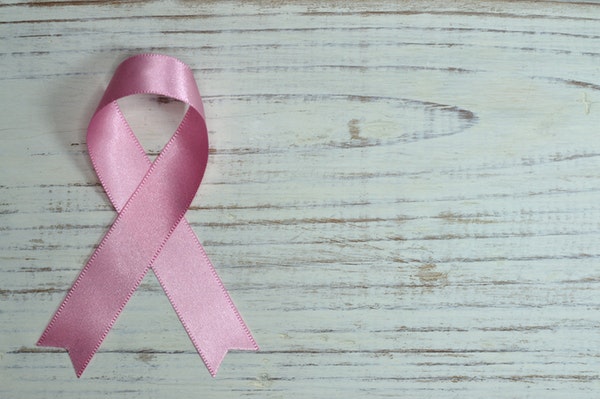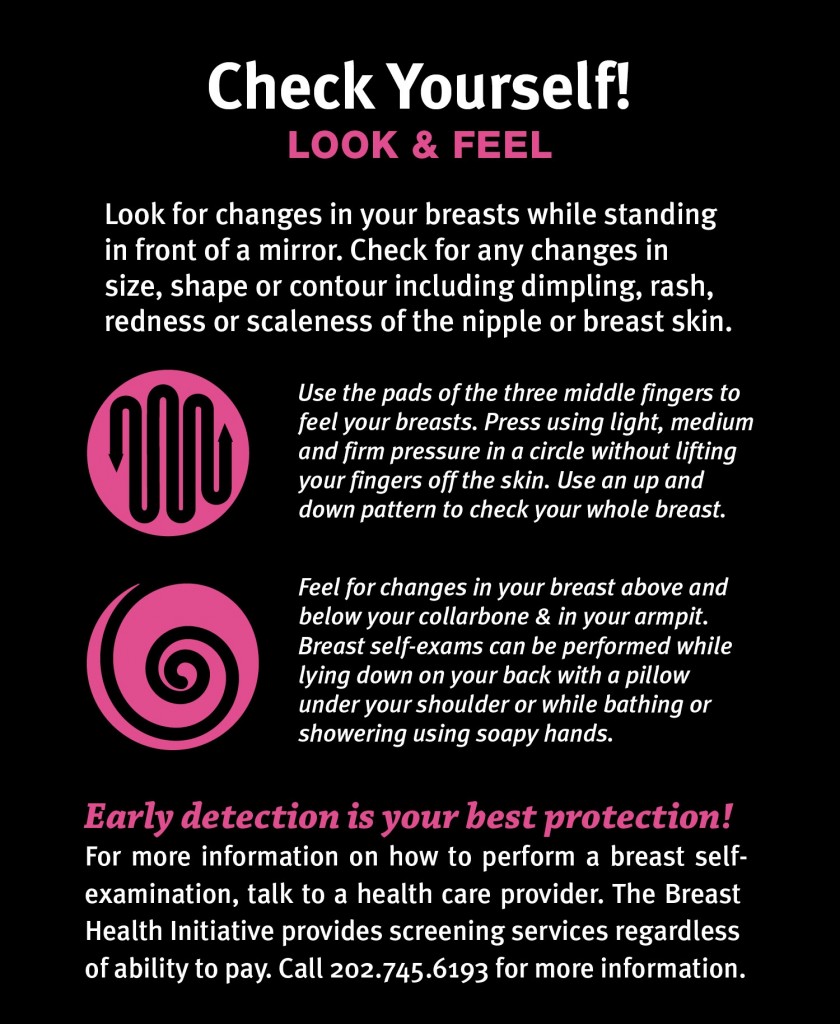A breast self-exam can help with early detection
By Riana Buford and Amie Krautwurst
Let’s face it: breast cancer sucks, particularly for women who live in Washington, D.C. According to the DC Cancer Consortium, D.C. leads the nation in the number of annual breast cancer deaths. Add on the fact that breast cancer is a significant problem for minority and low income women and it becomes monstrous, especially to lesbian and bisexual women.
Breast cancer risk for lesbian and bisexual women is increased by certain factors:
- Smoking – LGBT people smoke at rates up to two times higher than heterosexual people.
- Drinking – Studies have shown that lesbians are more likely to be heavier drinkers.
- Pregnancy – Lesbian and bisexual women are less likely to give birth by 30, if at all.
- Weight – Lesbian and bisexual women are more likely to be overweight, which has been linked to higher incidences of breast cancer.
- Healthcare – Lesbian and bisexual women are less likely to seek routine health care, which means no critical screening services.
- Screening – Lesbian and bisexual women are less likely to regularly examine their own breasts, which can significantly lower the chance of finding cancerous lumps at an early stage.
If a lump is detected early enough, there is a greater than 90 percent chance of beating the disease!
Performing a Breast-Self Exam (BSE) can be a daunting task, especially at first. There are many pictures available that show how a BSE should be done, but once we start, everything changes. Many questions pop into our minds, like “What if I find something?” and “Am I doing this right?” Because breast tissue normally feels lumpy-bumpy, we may ask “How do I know that this is a lump?” These are legitimate questions and can only be answered after you get in the habit of performing a BSE monthly. Over time, you will learn what is normal for you.
One tip for performing a BSE is to avoid looking for a lump, because that is exactly what you will find. Many women have naturally lumpy breast tissue. Cancerous lumps are often described as feeling “hard” and “fixed.” If you feel a lump that feels like a rock and is difficult to move, schedule an appointment with your health care provider as soon as possible.
Perform a BSE one week after your menstrual period ends, as your breasts may feel lumpy and tender while you are menstruating. If you no longer have a period, perform a BSE on the same day each month for consistency.
Annual clinical breast exams (CBE) and mammograms are vital. A CBE is very similar to a BSE, except it is performed by a health care provider. After you receive your CBE, perform a BSE so that you can understand what your provider felt and get a feel for what is normal for you.
Mammograms are for women 40 and over unless you have a family history of breast cancer. If you do, make sure to have an in depth conversation with your provider so that he or she can make appropriate recommendations for when you should begin receiving mammograms.
It is essential to understand the risk factors and educate each other so we can continue to enjoy long and healthy lives. If you or someone you love needs help, contact Mautner Project of Whitman-Walker Health to answer your questions and help you get into culturally-sensitive care. Call 202-797-3570 or e-mail mautnerproject@whitman-walker.org.
Riana Buford is the Health Educator at Mautner Project of Whitman-Walker Health, and Amie Krautwurst is the Health Educator at Whitman-Walker Health.



